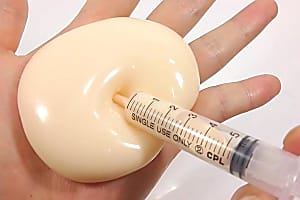Sanitary napkin vending machines lie defunct in Coimbatore corporation schools
Komal Gautham | tnn | Updated: Feb 4, 2018, 13:32 IST
Coimbatore: Owing to poor economic condition, lack of awareness and lack of family approval, nearly 60% of the students in corporation and government schools here are forced to use cloth instead of sanitary napkins, a survey conducted by Aram Foundation revealed. The finding also threw light on the mismanagement of sanitary pad schemes launched with much fanfare at the schools.
Mohana (name changed), a class XII student at a corporation higher secondary school, struggles during her period every month. A labourer's daughter, she told TOI that she cannot afford sanitary napkins. The napkin vending machines at her school, which was installed by the city corporation, ceased to function after two months.
Teachers at Mohana's school said they keep the napkins in the staff room. "We give it for free to the students when they ask for it," a teacher said.
The city corporation had spent Rs 50 lakh for setting up the machines and incinerators in 30 schools in the last five years.
Girl students at another school said that they were given only three packets of sanitary napkins a year. "The quality of the napkins we get from the school is so bad that I suffered an infection once. They are of no use and we have no choice but to buy branded ones," said Soundarya (name changed), another student.
However, the city corporation's education officer maintained that all vending machines in the schools are working.
Headmaster of a corporation school said that the schools receive about 5,000 sanitary napkins a year. "Sometimes, we get lesser stock and after much delay," he told TOI.
A teacher at another corporation schools agreed. "Launching a new service is not enough. They need to be maintained and supervised," she said.
Students from economically backward families have no other option but to use cloth, the teacher said. "They cannot afford sanitary napkins every month. Though we provide them for free, they are not sufficient," she told TOI.
S Latha of Aram Foundation said that the government schools did not even have a vending machine and the situation was worse at schools in rural areas. The NGO is planning to manufacture sanitary napkins and supply them to school students within a month. "We have purchased a low-cost sanitary pad manufacturing machine at a cost of Rs 3.25 lakh to make the pads. We will initially manufacture 1,000 pads," she said.
The survey, conducted in 15 government schools and seven corporation schools last year, had interviewed more than 1,000 girl students.
Mohana (name changed), a class XII student at a corporation higher secondary school, struggles during her period every month. A labourer's daughter, she told TOI that she cannot afford sanitary napkins. The napkin vending machines at her school, which was installed by the city corporation, ceased to function after two months.
Teachers at Mohana's school said they keep the napkins in the staff room. "We give it for free to the students when they ask for it," a teacher said.
The city corporation had spent Rs 50 lakh for setting up the machines and incinerators in 30 schools in the last five years.
Girl students at another school said that they were given only three packets of sanitary napkins a year. "The quality of the napkins we get from the school is so bad that I suffered an infection once. They are of no use and we have no choice but to buy branded ones," said Soundarya (name changed), another student.
However, the city corporation's education officer maintained that all vending machines in the schools are working.
Headmaster of a corporation school said that the schools receive about 5,000 sanitary napkins a year. "Sometimes, we get lesser stock and after much delay," he told TOI.
A teacher at another corporation schools agreed. "Launching a new service is not enough. They need to be maintained and supervised," she said.
Students from economically backward families have no other option but to use cloth, the teacher said. "They cannot afford sanitary napkins every month. Though we provide them for free, they are not sufficient," she told TOI.
S Latha of Aram Foundation said that the government schools did not even have a vending machine and the situation was worse at schools in rural areas. The NGO is planning to manufacture sanitary napkins and supply them to school students within a month. "We have purchased a low-cost sanitary pad manufacturing machine at a cost of Rs 3.25 lakh to make the pads. We will initially manufacture 1,000 pads," she said.
The survey, conducted in 15 government schools and seven corporation schools last year, had interviewed more than 1,000 girl students.
Get latest news & live updates on the go on your pc with News App. Download The Times of India news app for your device. Read more City news in English and other languages.
From the Web
More From The Times of India

It's Like Ebay, but Everything Sells in 90 Seconds
Tophatter
This Toxic Vegetable Is The No. 1 Danger In Your Diet
Gundry MD
Journey through the Eras in this Award-Winning Game
Forge Of Empires - Free Online Game
Say Goodbye to iPhone: This Could Be 40X Better
The Motley Fool
Get an Incredible $500 Bonus For Using This Card
The Points Guy









































All Comments ()+^ Back to Top
Refrain from posting comments that are obscene, defamatory or inflammatory, and do not indulge in personal attacks, name calling or inciting hatred against any community. Help us delete comments that do not follow these guidelines by marking them offensive. Let's work together to keep the conversation civil.
HIDE